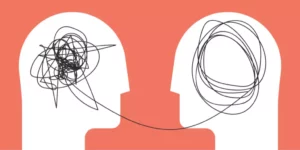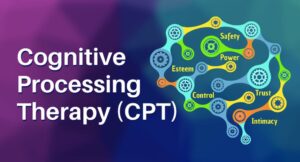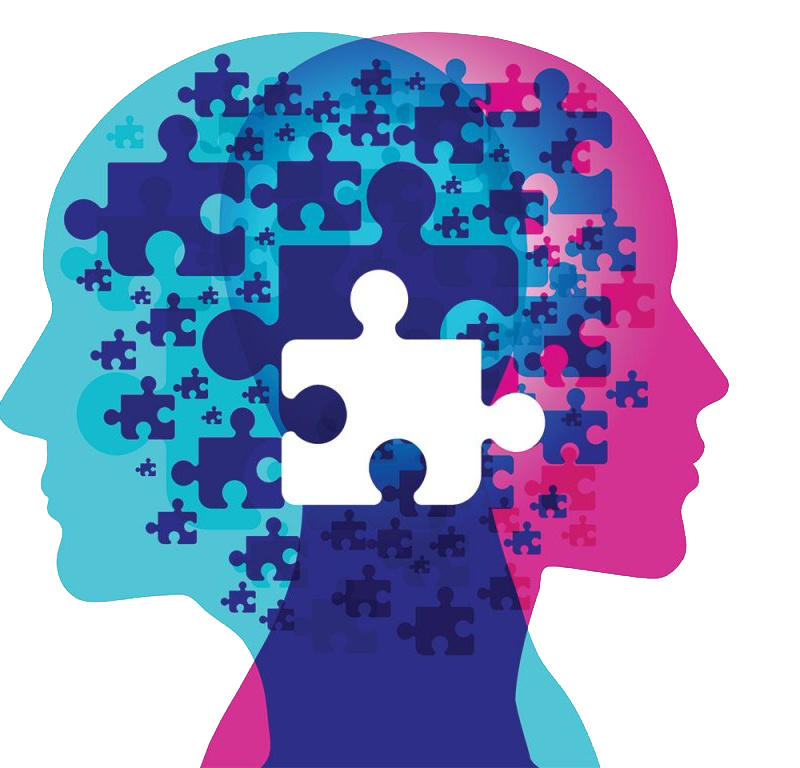Trauma-focused therapy is a form of treatment that is designed to help people who have experienced a traumatic event. The goal of this type of therapy is to help the person heal the emotional and psychological damage that was caused by the trauma. In many cases, trauma-focused therapy can help improve mental health and quality of life. Trauma-focused therapy can provide you with the tools you need to move on from the past and live a happier future. In this blog post, we will discuss everything about this approach to therapy and how it can help you overcome your traumas.
Contents
Defining Trauma-Focused Therapy
 Before understanding how trauma-focused therapy can help, it is important to understand what this type of therapy entails. Trauma-focused therapy is an evidence-based practice that uses different techniques to address the needs of individuals who have experienced a traumatic event. This type of therapy is based on the principle that the individual has the ability to heal from their trauma if they are given the right tools and support.
Before understanding how trauma-focused therapy can help, it is important to understand what this type of therapy entails. Trauma-focused therapy is an evidence-based practice that uses different techniques to address the needs of individuals who have experienced a traumatic event. This type of therapy is based on the principle that the individual has the ability to heal from their trauma if they are given the right tools and support.
As suggestive as the name may be, trauma-focused therapy is a type of treatment that helps individuals heal the psychological damage caused by exposure to a traumatic event. It is different from other forms of therapy in that it specifically addresses past traumas and their effects on the present.
The goal of trauma-focused therapy is not only to help people cope with the aftermath of a traumatic event, but also to help them heal the emotional and psychological damage that was caused by the trauma. This type of therapy can be an effective treatment for a variety of mental health conditions and emotional problems.
It is important to note that trauma-focused therapy is not a “quick fix” for mental health problems. The process of healing from trauma can be long and difficult. However, trauma-focused therapy can provide you with the tools you need to cope with your traumas and live a happier and healthier life.
How Does It Work?
The answer to this question may vary depending on who you ask but, in general, there are three elements that work together to help the individual heal from their trauma.
The first element, identifying and processing emotions related to the trauma, is important because it allows the individual to express what they are feeling. It is not uncommon for people who have experienced a traumatic event to bottle up their emotions. This can lead to a build-up of negative emotions that can eventually lead to mental health problems. By expressing these emotions, individuals can begin to process them and start on the road to recovery.
The second element, learning new coping and problem-solving skills, is important because it helps the individual to develop new ways of dealing with their emotions. After a trauma, it is not uncommon for people to rely on unhealthy coping mechanisms, such as substance abuse. Learning new coping skills can help individual to deal with their emotions in a healthy way.
The third element, increasing positive thoughts, and beliefs about oneself, is important because it helps the individual to see themselves in a positive light. After a traumatic event, it is not uncommon for people to have negative thoughts and beliefs about themselves. This can lead to low self-esteem and other mental health problems. By increasing positive thoughts and beliefs about themselves, individuals can begin to see themselves in a more positive light.
These three elements work together to help the individual heal from their trauma.
Types And Techniques
Trauma-focused therapy is an evidence-based practice that uses different techniques to address the needs of individuals who have experienced traumatic incidents. Each technique has its own specific goals and methods. However, all of the techniques used in trauma-focused therapy share a common goal: to help the individual heal from their trauma.
Some of the most common techniques used in trauma-focused therapy include:
Cognitive processing therapy (CPT)
 CPT, or Cognitive Processing Therapy, is a type of trauma-focused therapy that focuses on helping the individual to change their thoughts and beliefs about the trauma. The goal of this therapy is to help the individual to see their trauma in a more realistic light. This can help to reduce the negative emotions that are associated with the trauma. Furthermore, it can help the individual to develop new coping skills.
CPT, or Cognitive Processing Therapy, is a type of trauma-focused therapy that focuses on helping the individual to change their thoughts and beliefs about the trauma. The goal of this therapy is to help the individual to see their trauma in a more realistic light. This can help to reduce the negative emotions that are associated with the trauma. Furthermore, it can help the individual to develop new coping skills.
For example, one way that CPT is used is through imaginal exposure therapy. This type of therapy involves the individual imagining their trauma. This can help to reduce the intensity of the emotions that are associated with the trauma. Furthermore, it can help the individual to develop new coping skills.
Another way that CPT is used is through in-vivo exposure therapy. This type of therapy involves the individual going to a safe place and confronting their fears. This can help the individual to overcome their fear and develop new coping skills.
Eye Movement Desensitization and Reprocessing (EMDR)
EMDR, or Eye Movement Desensitization and Reprocessing, is a type of trauma-focused therapy that uses exposure and eye movements to help the individual process their trauma. It is based on the principle that when we are exposed to a traumatic event, our brain becomes overloaded and we are unable to process the trauma. This can lead to negative emotions, such as fear, anxiety, and guilt. EMDR helps individuals in a safe environment and helps them to move their eyes back and forth. This can help to reduce the intensity of the emotions that are associated with the trauma. Furthermore, it can help the individual to develop new coping skills.
For example, if an individual is afraid of heights, they may be asked to imagine themselves at the top of a tall building. As they imagine this, they will also be asked to move their eyes back and forth. This can help to reduce the fear that is associated with heights. Furthermore, it can help the individual to develop new coping skills.
Psychodynamic Therapy
 Psychodynamic therapy is one of the most common types of therapy. It focuses on helping the individual to understand their thoughts and emotions. This can help to reduce the negative emotions that are associated with the trauma. Furthermore, it can help the individual to develop new coping skills.
Psychodynamic therapy is one of the most common types of therapy. It focuses on helping the individual to understand their thoughts and emotions. This can help to reduce the negative emotions that are associated with the trauma. Furthermore, it can help the individual to develop new coping skills.
For example, one way that psychodynamic therapy is used is through free association. This type of therapy involves the individual talking about their thoughts and emotions. This can help to reduce the intensity of the emotions that are associated with the trauma. Furthermore, it can help the individual to develop new coping skills.
Another way that psychodynamic therapy is used is through interpretation. This type of therapy involves the therapist interpreting the thoughts and emotions of the individual. This can help the individual to understand their thoughts and emotions.
Prolonged Exposure Therapy
PET, or Prolonged Exposure Therapy, is a type of trauma-focused therapy that is based on the principle of exposure. The goal of this therapy is to help the individual confront their fears and memories of the trauma. This is done by gradually exposing the individual to their feared memories and thoughts. The exposure is done in a safe and controlled environment so that the individual can learn to cope with their fear without being overwhelmed.
For example, if an individual is afraid of going outside because they were attacked while walking down the street, the therapist may start by having the individual imagine walking down the street. The therapist will then gradually increase the level of exposure by having the individual walk down the street in real life. As the individual becomes more comfortable with this activity, they will be able to confront their fear and eventually overcome it.
Expressive Art Therapy
 As suggestive as the name may be, expressive art therapy is not about creating a masterpiece. It’s a type of therapy that uses art as a way to help the individual express their thoughts and emotions. This can be done through various mediums, such as painting, drawing, sculpture, and music.
As suggestive as the name may be, expressive art therapy is not about creating a masterpiece. It’s a type of therapy that uses art as a way to help the individual express their thoughts and emotions. This can be done through various mediums, such as painting, drawing, sculpture, and music.
For example, one way that expressive art therapy is used is through color. The therapist may ask the individual to choose a color that represents their emotions. The therapist will then help the individual to understand the emotions that are associated with the color. This can help the individual to understand their thoughts and emotions. Furthermore, it can help the individual to develop new coping skills.
Expressive art therapy is a beneficial type of therapy for individuals who have experienced trauma. It can help to reduce the intensity of the emotions that are associated with the trauma.
Jungian therapy
Derived from the work of famed psychologist Carl Jung, Jungian therapy is a type of therapy that uses symbols and metaphors to help people heal from their past. It is based on the premise that our past experiences are stored in our subconscious minds. By understanding the symbols and metaphors in our dreams, we can start to understand our past experiences.
For example, let’s say that you were in a car accident. The trauma of the accident may have left you feeling scared and anxious. You may have trouble sleeping, and you may startle easily. Now, let’s say that you go to a Jungian therapist. The therapist may help you work through the trauma by helping you understand the symbols and metaphors in your dreams. They may help you understand the emotions that are associated with the trauma. By understanding the trauma in this way, you can start to heal from it.
Clinical hypnosis
 While hypnosis may have a rather negative reputation, it can be a very effective type of therapy. Clinical hypnosis is a type of therapy that helps people heal from trauma. It can be used to help people with all sorts of different types of trauma, including PTSD, anxiety, and depression. Clinical hypnosis is a type of therapy that uses relaxation techniques to help people reach a state of deep relaxation. This deep state of relaxation allows the therapist to access the subconscious mind. Once the therapist has access to the subconscious mind, they can help the individual heal from their trauma. Hypnosis is a type of therapy that can be very beneficial for people who have experienced trauma. It can help them heal from their past and improve their future.
While hypnosis may have a rather negative reputation, it can be a very effective type of therapy. Clinical hypnosis is a type of therapy that helps people heal from trauma. It can be used to help people with all sorts of different types of trauma, including PTSD, anxiety, and depression. Clinical hypnosis is a type of therapy that uses relaxation techniques to help people reach a state of deep relaxation. This deep state of relaxation allows the therapist to access the subconscious mind. Once the therapist has access to the subconscious mind, they can help the individual heal from their trauma. Hypnosis is a type of therapy that can be very beneficial for people who have experienced trauma. It can help them heal from their past and improve their future.
For instance, a study done in 2010 found that clinical hypnosis can be an effective treatment for PTSD. The study found that people who underwent clinical hypnosis had a significant reduction in their symptoms of PTSD. Hypnosis can also be used to help people with anxiety and depression.
Somatic Therapy
A rather unconventional but effective type of therapy for trauma is somatic therapy. Somatic therapy is a type of therapy that uses the body to heal the mind. It is based on the premise that the body and mind are interconnected. Therefore, by working with the body, we can also work with the mind.
Let’s understand this better with an example. Supposing that you were in a car accident. The trauma of the accident may have left you feeling scared and anxious. You may have trouble sleeping, and you may startle easily. Now, let’s say that you go to a somatic therapist. The therapist may help you work through the trauma by helping you re-experience the accident in a safe and controlled environment. They may help you release the emotions that are trapped in your body. By working through the trauma in this way, you can start to heal from it.
Somatic therapy can be very helpful for people who have experienced trauma. It can help them heal from their past and improve their future.
Narrative Therapy
 Lastly, narrative therapy can be very helpful for people who have experienced trauma. This type of therapy focuses on the individual’s story. The therapist helps the individual to understand their story and to find a new way to tell their story. This can help the individual to heal from their trauma and to move on with their life.
Lastly, narrative therapy can be very helpful for people who have experienced trauma. This type of therapy focuses on the individual’s story. The therapist helps the individual to understand their story and to find a new way to tell their story. This can help the individual to heal from their trauma and to move on with their life.
For example, if someone has a story of being abused, they may feel like they are a victim. However, with narrative therapy, they can find a new way to tell their story. They can find a way to tell their story that empowers them and helps them to feel like they are in control of their life.
There are many different types of trauma-focused therapy, and each one can be beneficial for people who have experienced trauma. All of these types of therapy can help people heal from their past and improve their future.
If you or someone you know has experienced trauma, consider seeking out one of these types of therapy. It could be the key to healing and improving your future.
Who Is It Helpful For?
Something as sensitive and unfortunately, recurring as trauma is something everyone faces. Trauma can be of any kind, be it domestic violence, a life-threatening accident, rape, or any other form of sexual abuse, or natural calamities like an earthquake or tsunami. It could also be something less serious as well but nonetheless upsetting such as a bad breakup, losing a job, or being humiliated in public.
If you’re currently dealing with the after-effects of trauma and find it hard to go about your daily life as usual, you might want to further consider seeking professional help. There are people who may also develop certain disorders after experiencing trauma. These may include:
- Post-traumatic stress disorder (PTSD)
- Anxiety disorders
- Depressive disorders
- Substance abuse disorders
If you have any of the above disorders or think you might, trauma-focused therapy can be very beneficial. It can help you understand and work through your trauma so that you can start to heal.
Benefits
This approach type of therapy has many benefits. Some of these benefits include things such as:

- Helping you to understand your trauma
- Managing and working through your emotions
- Assisting you to develop coping skills
- Guiding you to find a new perspective
- Improving your relationships
- Validating and accepting yourself
- Learning how to trust again
- Building self-confidence
- Improving your mental and emotional well-being
- Giving you a sense of control
All of these benefits can help you heal from your past and also to improve your future. If you’re struggling to deal with your trauma, consider seeking out trauma-focused therapy. It could be the key to healing and improvement.
Drawbacks
As with any type of therapy, there are some drawbacks to trauma-focused therapy. These may include:
- You may need to see a therapist for a long time
- You may need to relive your trauma during therapy
- Sometimes it may cause you to feel worse before you start to feel better
- You may need to try more than one type of therapy before you find one that works for you
- You may need to take medication
- It may not be right for everyone
- It may be costly
- You may not have access to a qualified therapist
However, despite these drawbacks, trauma-focused therapy can be very beneficial. It can help you heal from your past and improve your future.
Things To Consider

If you are going to start trauma-focused therapy, there are a few things you should keep in mind.
- First, it is important to find a therapist that you trust. This person will be helping you work through some very sensitive and personal issues. It is important that you feel safe and comfortable with them.
- Second, trauma-focused therapy can be very emotional. You may find yourself feeling a range of emotions, including anger, sadness, fear, and shame. It is important to remember that these emotions are normal and that they are a part of the healing process.
- Third, trauma-focused therapy can be costly. However, there are many ways to manage costs and make it a financially balanced experience.
- Lastly, it is important to be patient with yourself. Healing from trauma takes time. There is no “right” way to heal and there is also no timeline for healing. Just remember that every step forward is a step in the right direction.
Trauma-focused therapy can be very beneficial for people who have experienced all kinds of trauma. It can help them heal from their past and improve their future. If you or someone you know has experienced trauma, consider seeking professional help.
Conclusion
In conclusion of the above, trauma-focused therapy is a type of therapy that can be very beneficial for people who have experienced all kinds of trauma. It can help them heal from their past as well as improve their future. If you or someone you know has experienced trauma, consider seeking professional help.
If you or someone you know is looking for psychological help, Therapy Mantra is here for you. We are the leading providers of online therapy and counseling. Our team of highly trained and experienced therapists can provide assistance at the most affordable rates. Contact us today to learn more about our services. You may also visit our website to book an online therapy session or download our free Android or iOS app for more information.


